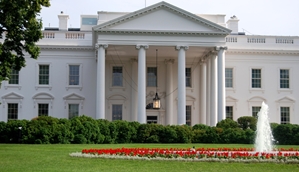Congress and the White House are often at odds with one another, and it is no different when it comes to the proposed military budget. This was certainly the case recently when the House Armed Services Committee released its proposed 2014 budget. Although White House officials agreed on some of the bill's components, there are a number of areas they took issue with, including concerns surrounding veterans benefits and healthcare costs, Military.com reports.
TRICARE causes friction
The Pentagon has to cut hundreds of billions of dollars over the next decade, and an increase to TRICARE fees is one of the ways officials have proposed reducing spending. The new bill from the HSAC ran counter to urges from the DOD and the White House to implement a slight increase in the enrollment fees for TRICARE Prime, as well as implementing similar fees for TRICARE Standard/Extra and TRICARE for Life. In its response to the HSAC's bill, the White House said that while it recognizes veterans have earned these helpful health benefits, it's also important to take advantage of the substantial savings that exist.
"The projected fiscal year 2014 TRICARE savings of $902 million and $9.3 billion through FY 2018 are essential for DOD to successfully address rising personnel costs," White House officals wrote. "DOD needs these savings to balance and maintain investments for key defense priorities, especially amidst significant fiscal challenges posed by statutory spending caps."
Lower pay raises an issue
Increased TRICARE fees weren't the issue where government officials disagree. The Pentagon also floated the idea of lowering the annual pay raise active duty troops receive to 1 percent instead of the 1.8 percent that would put them in line with civilian pay. The White House says the original plan both recognizes the work of servicemembers while dealing with the reality of sequestration and budgetary concerns.
What lies ahead
It remains to be seen whether the HSAC's bill moves forward through Congress, but experts speculate that it would likely be vetoed should it reach the president's desk. Still, something needs to be done about healthcare costs. According to The Associated Press, military healthcare costs could hit $65 billion by 2017 and then reach $95 billion by 2030. In 2001, those figures stood at just $19 billion.

